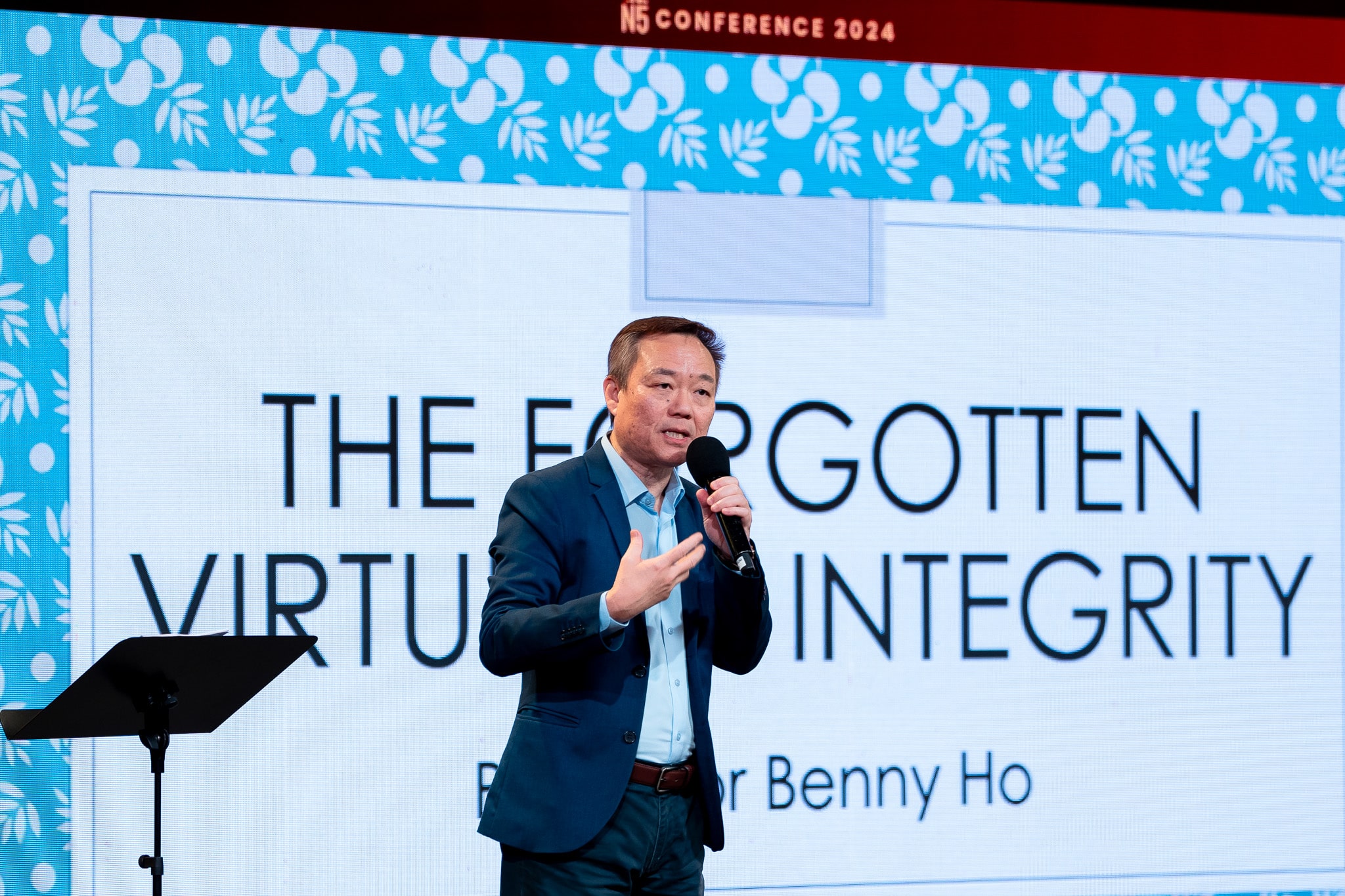What if a client overpays you? Andrew Thomas of Equus Design on grappling with business dilemmas
by Gemma Koh // November 19, 2020, 2:38 pm
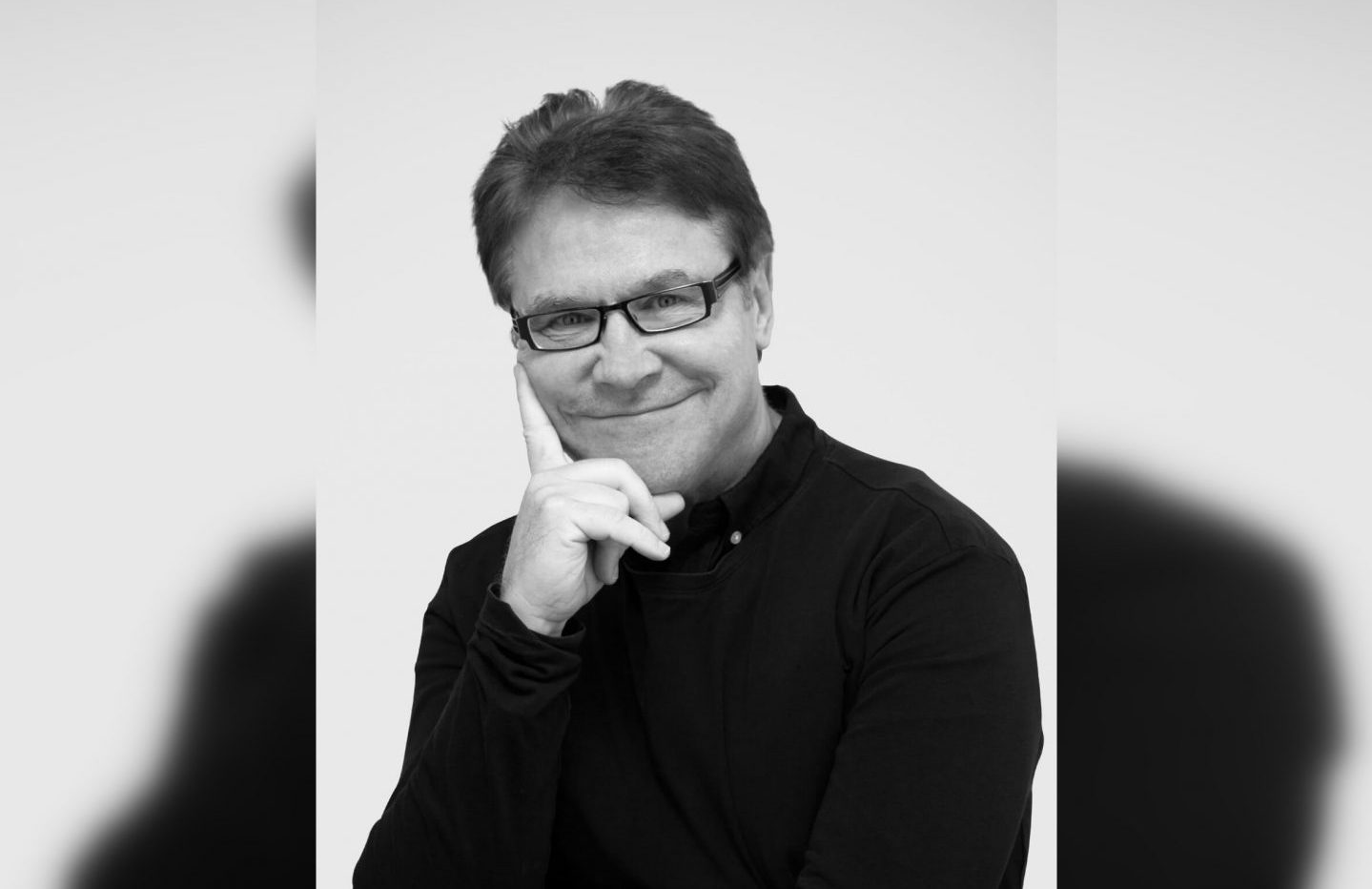
When he started his design and branding consultancy in 1994, Andrew Thomas, managing partner and creative director of Equus Design Consultants, wrote out a code of ethics with his partners that included treating all – from clients to suppliers to colleagues – with respect. Photo from equus-design.com.
What would you do if a client overpays you and you desperately need the money?
During the Asian Financial Crisis of the late 1990s that wiped out foreign currency reserves and saw the fall of Suharto, the Rupiah crashed to such an extent that Andrew Thomas’ Indonesian clients said they couldn’t afford to pay his company anything.
Several clients owed them money to the tune of S$300,000 – a ransom for a small business. Jakarta at that time made up one third of his business.
“I think that is one way God has honoured us.”
The Englishman is lead founder of Equus Design Consultants, a Singapore-based design company and branding consultancy, with clients from East Asia to the Middle East. In Singapore, they are currently working with Sembcorp Group, and have produced DBS Bank’s annual reports for the last dozen or more years. Clients in their stable have included law firm Rajah & Tann. They rebranded the National University of Singapore 20 years ago with an identity that is “still going strong”, and have worked on coveted brands of hoteliers like Raffles Hotels & Resorts and Legian Hotel Management.
“By some fluke, one client from Jakarta overpaid us,” Thomas told Salt&Light. “The invoice was in Singapore dollars, but he paid us in US dollars.”
At that time, one Singapore dollar was worth two US dollars. “We had twice as much money,” said Thomas.
“There is no way we are not giving this money back. We’re going to tell the client,” he told his team.

Screenshot from Equus Design Consultants Instagram highlighting some of the current people at its core, and some of the consultant’s clients (from top to bottom of right column): Architecture firm RSP, Nanyang Academy of Fine Arts (NAFA), IPOS International (the business arm of the Intellectual Property Office of Singapore) and National Gallery Singapore.
“We were not doing it because we want to be rewarded by God. We did it because it is the right thing.
“But I did wonder what God would do if we gave back this money at the time we couldn’t afford to give it back,” he admitted.
Within three weeks, he got his answer. “By some miracle, all S$300,000 was paid back, except for one bad debt of S$9,000.
“I think that is one way God has honoured us,” said Thomas, a youthful-looking 60-something, who is a lay leader at the evening service of St George’s Church. He is also an Alpha and small group leader.
Caught in crossfire
Thomas had his beginnings in art school and later got a BA Honours in graphic design. His father was a vicar who also taught at the London School of Theology for 25 years. Thomas himself studied contextual theology at St Mellitus College in the UK.
In 1991, he came to Singapore to start a corporate branding office for the global design company he had been working in for about a decade.
He unintentionally got caught in the crossfire of what was not a happy, mutually supportive atmosphere.
“I’m an easy target. I’m not a corporate person. I don’t play the brown-nose kind of thing. I don’t really like management meetings. I like getting on with the job.
To cut a long story short, his team was torn apart and he was asked to leave, even though he was bringing in one-third of the business.
So he went back to the UK to think about his next step. Friends prayed with him about his future.
“I laid my plans before God. Do You want me to go back to the company in London, work for someone else in London, or come back to Singapore and start up my own company?
“As I tend always to do at crossroads in my life, I also asked God, ‘Do you want me to go into ministry in some full-time capacity?'”
He sensed God saying: “The calling for you remains the same.” That is, the calling to work in design remained the same.
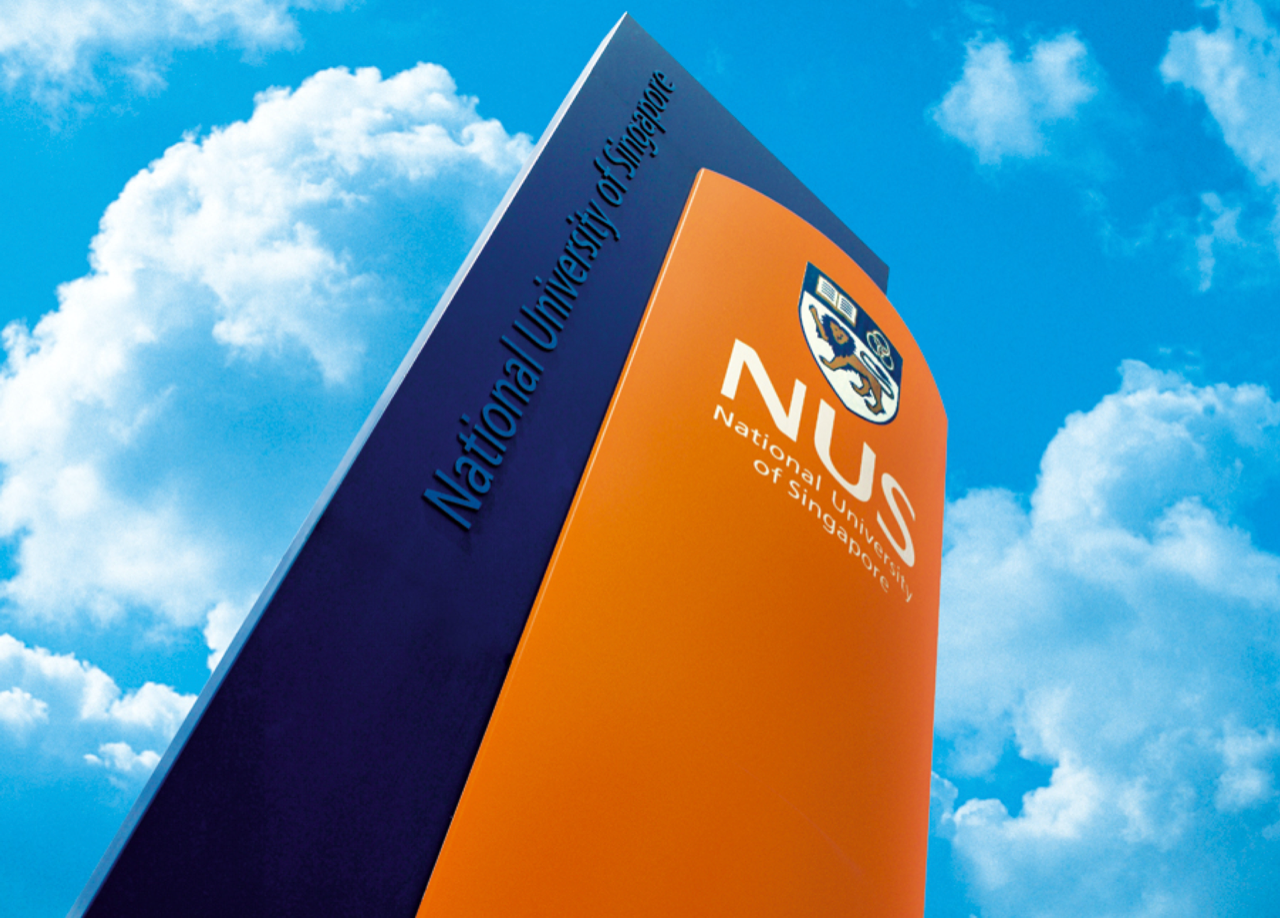
Still going strong … the identity of the National University of Singapore that Equus rebranded 20 years ago.
He sensed that God was calling him to start up a business – one “built around Christian principles with moral principles that others, whether an observant member of another faith or an atheist, with a moral core can buy into”.
He sensed God say: “The calling for you remains the same.”
He also didn’t not feel it was time to say goodbye to Singapore. He had by then built a life among friends and church.
Some former colleagues had expressed interest in joining him if he ever started a business of his own. So roping in four of them whom he trusted, he set up Equus Design in Singapore in 1994 – with three of them as partners, and one as an employee. Equus means horse in Latin.
He wrote a business plan and raised funding from Christian friends in London, and three partners who had shareholdings in the company.
The company rapidly became one of the leading design companies in Singapore. They started an office in Jakarta almost straight away, and later on, an office in Hong Kong, and developed strong reputations in those markets as well.
A strong foundation
Equus Design’s vision was to be the best little design company in branding and communications in Southeast Asia. “Not only in terms of creativity, but the way we serve our clients.
“So, that meant we wanted to be the best creatively, professionally, conceptually, intellectually, and in our service values and ethics.”
Thomas was against what he saw as “the standard things people do in business” at that time. They included “covering up mistakes, or routinely lying to clients when it was more convenient to do so”.
Two verses in particular that shaped his thoughts as he set up the business were: “Trust in the Lord with all your heart, and do not lean on your own understanding. In all your ways acknowledge Him, and He will make straight your paths” (Proverbs 3:5-6) and “But seek first the kingdom of God and his righteousness, and all these things will be added to you.” (Matthew 6:33)
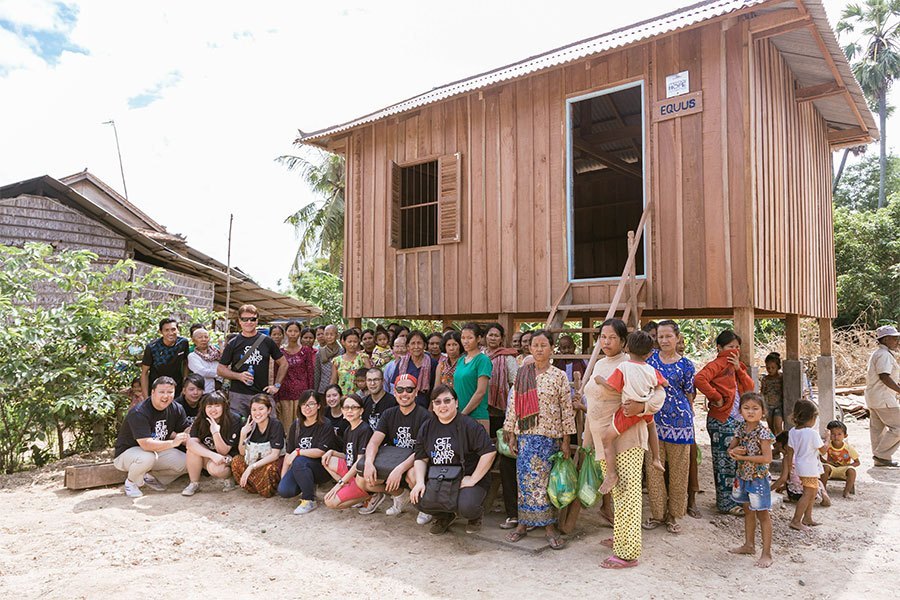
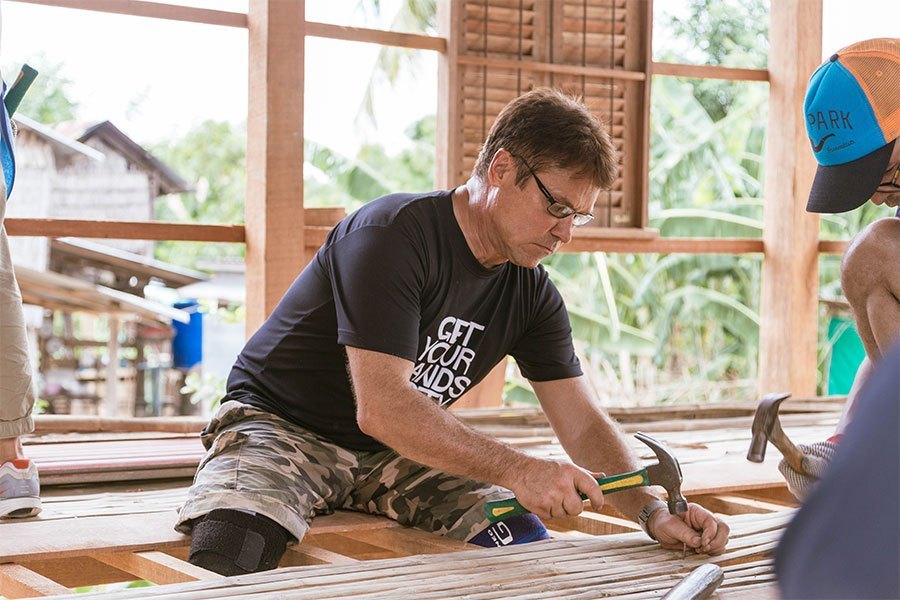
Andrew and the Equus team helped build a house for a villager in Cambodia, during a five-day CSR trip with Operation Hope Foundation in 2015, where the team also helped out at an orphanage. Photos courtesy of Equus Design.
“I’ve always been motivated by the desire to serve God and build His kingdom, in whatever I’m doing. As a child I used to think that meant being a pastor or a missionary, maybe because that’s what my father was. But as I grew older, I realised that God created the earth and everything in it, and that covers everything we do on earth too, including things like business and commerce.
“So when Jesus told us to pray “Thy kingdom come, thy will be done, on earth as in heaven”, that means God wants us to build his Kingdom on earth in every human sphere, including business, and not just in our gospel outreach. In fact, everything we do is about gospel outreach.
“We wanted to be the best creatively, professionally, conceptually, intellectually, and in our service values and ethics.”
“So what these verses say to me is that when we honour God and seek the building of His kingdom in whatever He gives us – the talents and the opportunities, including so-called secular things like building a commercial enterprise and running a design company – He will honour us. He will ‘make our paths straight’ and prosper us … at least, prosper us on His terms, not necessarily those of the world.”
As part of the business plan, Thomas wrote out core principles and ethics that they would adhere to. The partners’ previous working experience made them think about what they wanted their company to stand for – things that would set them apart.
“Actually, they’ve become standard business principles today. But at that time they were quite unusual,” said Thomas.
These principles are spelled out in Being Equus, a little book with black and white illustrations which Thomas wrote 15 years later when he was returning to the UK to look after his elderly parents. “I did not think I was coming back to Singapore. So I needed to leave something behind to enshrine the values, the principles, the vision that we founded the company on.”
“It’s proved to be quite a good sales tool,” said Thomas, though the book is addressed to new employees.
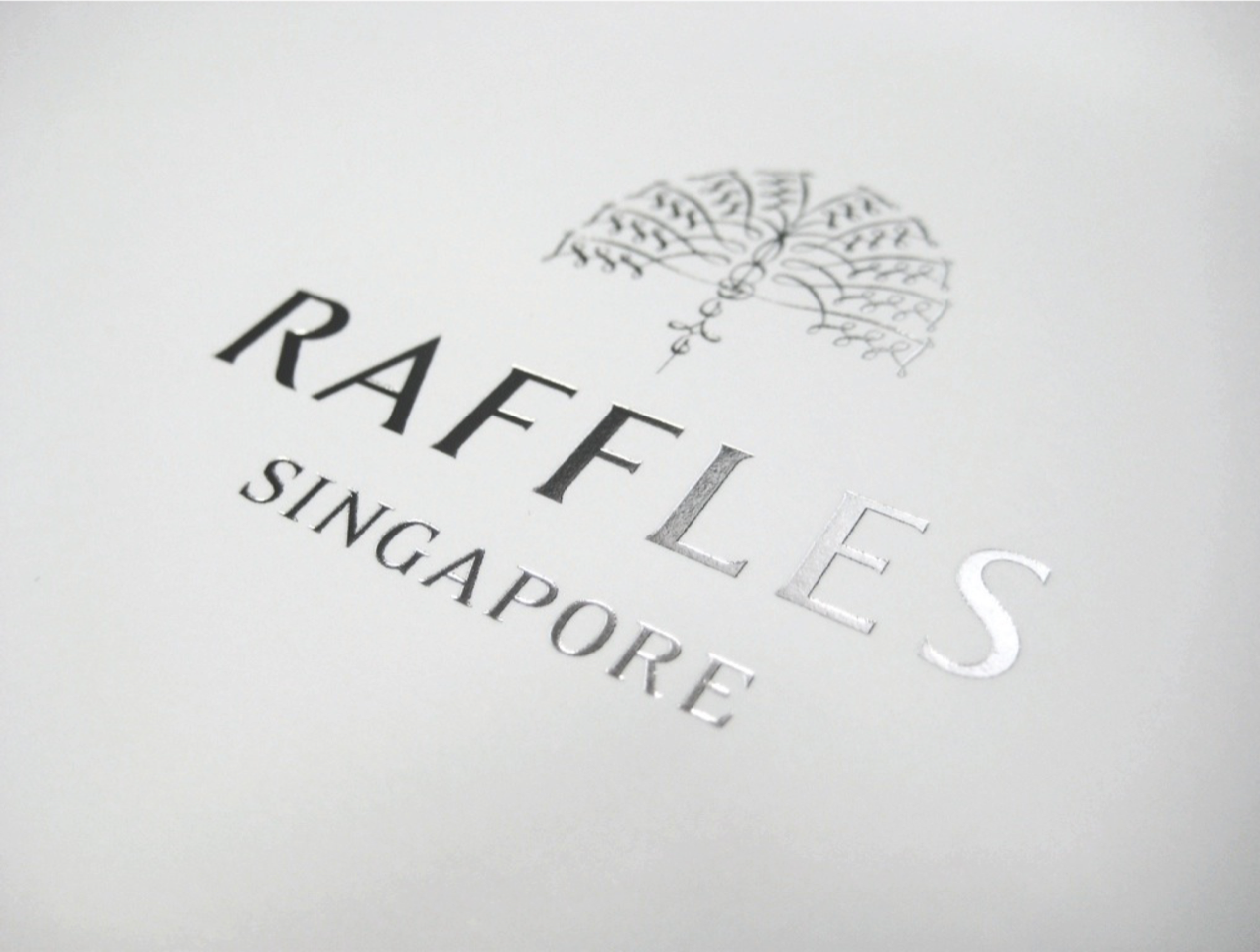
When the Raffles brand of hotels needed a contemporary yet timeless overhaul, Equus took their cue from the famously hand-drawn Traveller’s Palm, and expressed it with elegant simplicity.
The idea behind the ethics “was to give people a taste of Christian values. So as time goes by people would gain an insight into what the Kingdom of God is about”.
“You don’t lie to clients, you don’t short change them. If you screw up, you ’fess up to the client.”
“I was always hoping, praying, working towards the idea that you’re socialising the Gospel. The staff and the clients get to know you and, if you treat them in the right way, after a while they would realise it’s what being a Christian is about.’
“You don’t lie to clients, you don’t short change them. You are honest about everything. If you screw up, you ’fess up to the client and do your best to fix it.”
It was also about respecting the planet, and respecting life. For instance, among the companies they won’t work for are those whose activities do deliberate harm to the environment and community, like deforestation, and firms with a core business in tobacco, gambling or indiscriminate arms sales.
Equus Design would also devote a portion of their energies to giving back to the communities around them. For example by donating their services and designing fund-raising materials.
Diversity and differences
Respect for others extends not just to clients, but to suppliers and staff and also having mutual respect for each other, and their work-life balance, time with their families and time for rest.
“For me as a Christian, it was about creating an environment where Christian principles are the foundation.”
“We believe the best work results from a partnership of equals, so Equus operates more like a family, where nobody is considered more important than anyone else.
“For me as a Christian, it was more about creating an environment where Christian principles were the foundation, and treating one another as family.
“There’s a good amount of give and take. “We don’t watch the clock if people do their job,” said Thomas.
“In the process, the company effectively became my family,” said Thomas, who is not married. “And that’s the atmosphere. Our hierarchy is pretty flat. Our work style is pretty relaxed.”
Not everyone on the team will agree with every point of their code, Thomas acknowledged.
Especially given the diversity of their cosmopolitan team that he said “broadens our outlook, enriches our work, and generally makes life more interesting”. Their happy team mix comprises people of different “religious beliefs, life philosophy, orientation, or football club allegiance”.
Being Equus says: “… just as we respect your opinions, so we ask you to respect ours, at least while you work here. And if you should ever think we’re failing to live up to the Equus Code, please feel completely free to challenge us as well”.
But Equus creates a safe space for its staff in which their views are respected. For example, for the sake of harmony, they ask that “objects connected with or promoting any religion or superstition will not be left in our offices … If you own something of this nature and like to carry it around, we ask you to keep it on your own person.”
A new style
Equus has survived the Asian Financial Crisis, the dot com bubble, the SARS (Severe Acute Respiratory Syndrome) crisis, and the 2008 global financial crisis. Along the way Equus closed its Jakarta and Hong Kong offices, but they’ve since re-established a new presence in the Indonesian capital.
“We almost died three years ago,” said Thomas. “There was a quiet recession that nobody talked about in 2016 to 2017 that affected the creative industry. And a lot of companies went out of business.”
“By some divine providence, this team has proved to be extremely loyal, very entrepreneurial.”
As though that wasn’t enough, as the firm saw its 26th anniversary, along came the Covid crisis. Even though Covid has been far worse than all the other crises they’ve been through, “so far, we’ve done okay. God has looked after us”.
About two-and-a-half years ago, Equus Design had a total infusion of new blood “that has really revitalised the company” and ushered in “a new style”.
“By some divine providence, this team has proved to be extremely loyal, very entrepreneurial, and have been taking responsibility for the success of the company.
“In this Covid crisis, they – from the oldest to the youngest – are all thinking of ideas about how to improve the company, getting more work.”
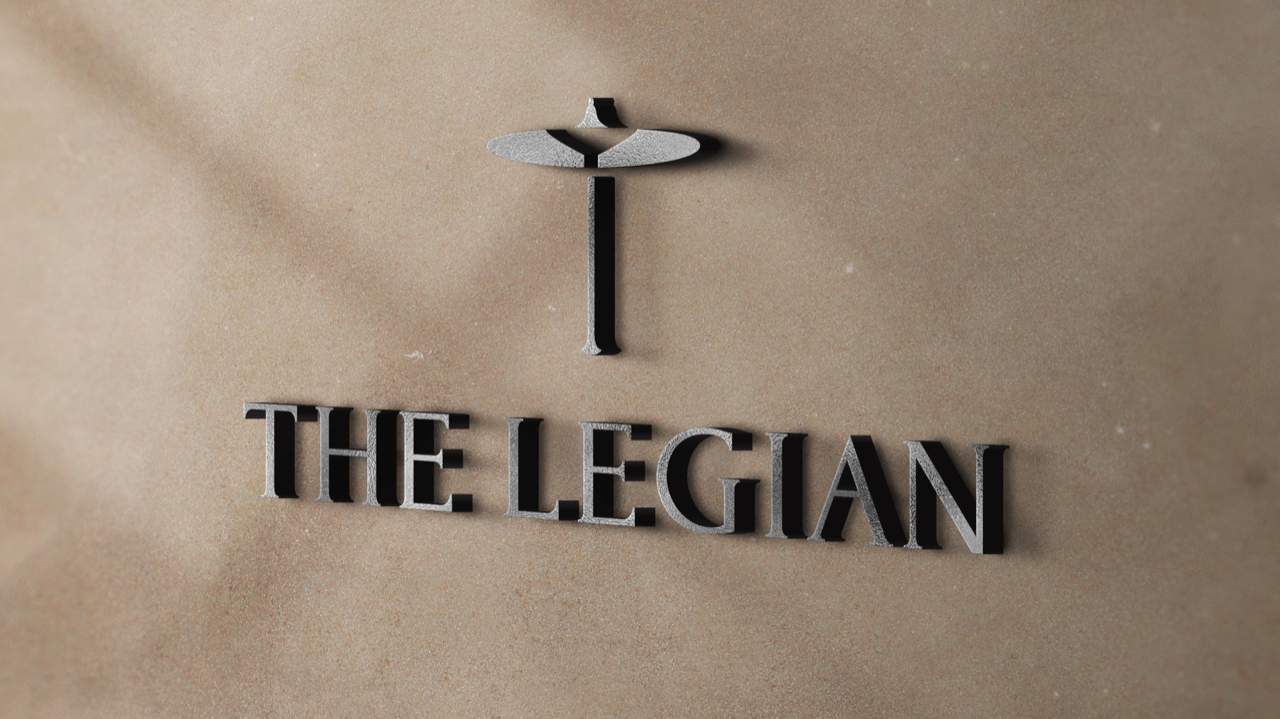
When the owners of The Legian Bali in Seminyak decided to create a chain of luxury hotels across Southeast Asia, Equus was appointed to enhance the luxury feel of all the brands under the LHM group.
They’ve created opportunities like webinars in Jakarta which have been well subscribed, an Instagram presence, and their new podcast The Brandits, hosted by Thomas plus a partner from another company.
These supplement the company’s blog, started six years ago, highlighting issues related to branding and design. Subjects include corporates jumping on the woke bandwagon (woke refers to the perceived awareness of issues concerning social justice and racial justice), turning your staff into your best ambassadors, and keeping brands afloat during times of crisis. The blog has boosted their search engine optimisation, and driven many sales enquiries to them.
Of his team, Thomas said: “This is one reason why I feel that this is God’s company.
“I feel God has rewarded us by bringing along a bunch of people who are so dedicated and so talented in their own way. The new blood is the future of the company.”
Check back soon for God moments in Andrew Thomas’ life.
MORE STORIES ON DOING GOOD IN BUSINESS:
“God is the Master Builder”: Datuk Edward Ong, founder of the Sutera Harbour Resort
The Equus Code
- Respecting you
- Respecting each other
- Respecting our clients and suppliers
- Respecting the planet
- Respecting life
- Respecting faith
- Respecting intellectual property
- Respecting our profession
- Respecting competitors
- Avoiding underhand solutions
- Avoiding tobacco
- Avoiding gambling
- Avoiding irresponsible arms sales
- Giving back to the community
Read Being Equus here.
We are an independent, non-profit organisation that relies on the generosity of our readers, such as yourself, to continue serving the kingdom. Every dollar donated goes directly back into our editorial coverage.
Would you consider partnering with us in our kingdom work by supporting us financially, either as a one-off donation, or a recurring pledge?
Support Salt&Light
